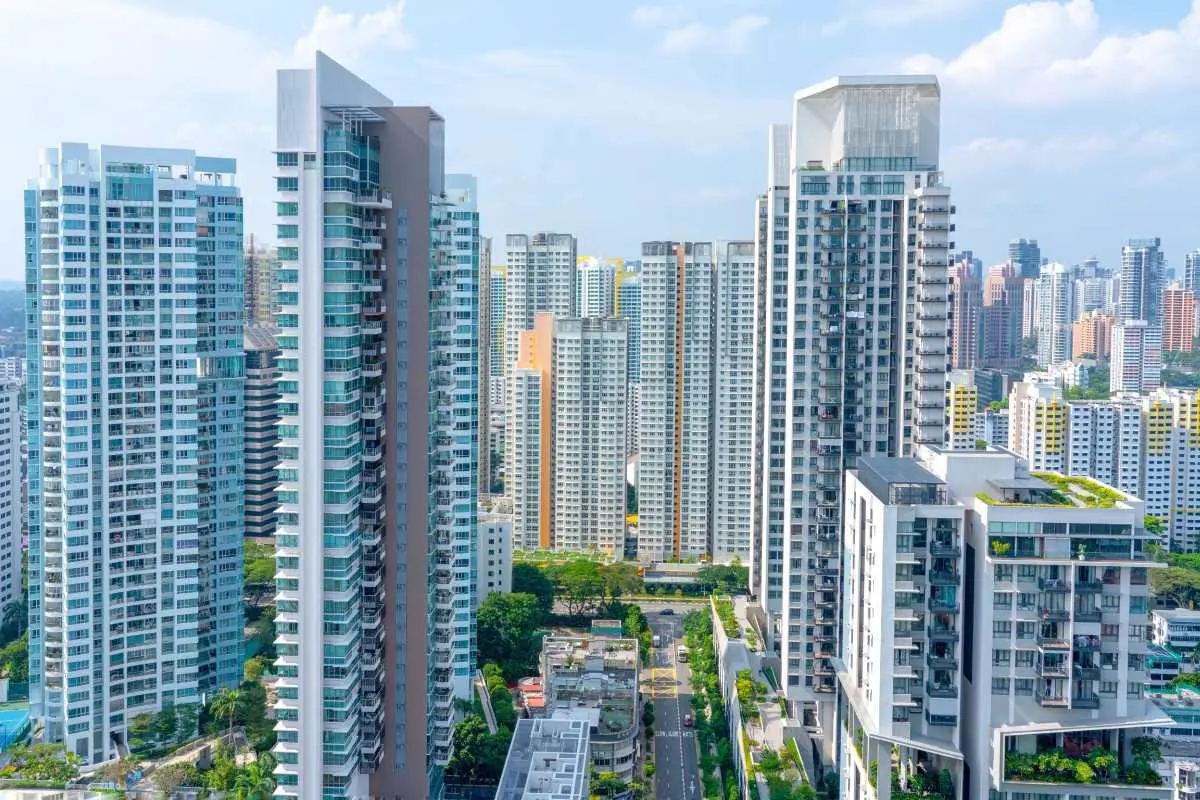
Jumping into real estate without getting burned takes more than blind optimism. I learned that lesson the hard way. My first property investment in Singapore wasn’t a smooth ride.
Between government policies, shifting market cycles, and developer tactics, I had to separate real opportunities from overhyped traps.
If you think pre-construction deals are a shortcut to easy money, you might want to sit down with a strong drink. Let me tell you how it really went down.
Key Highlights
- Pre-construction deals can make or break your finances.
- Government policies dictate more than you think.
- Developer reliability is everything.
- Market timing is not just a buzzword.
- Finding undervalued opportunities takes work.
Spotting the Right Project

The first challenge? Identifying a project that actually made sense. Many pre-construction launches promise the world, but I wanted numbers that held up.
Nava Grove stood out not because of flashy marketing but because of its Mount Sinai/Pandan Valley location and well-planned layout.
With three 24-storey towers, 552 units, and a solid plot ratio of 2.1, it had the right mix of exclusivity and scalability. Not every project is worth your time. This one was different.
Beyond location and layout, I dug deeper into the project’s fundamentals. The developer had a strong track record, the surrounding infrastructure was improving, and the supply-demand balance in the area suggested long-term appreciation. Numbers mattered more than aesthetics. I ran the calculations, checked resale trends, and mapped out rental demand. Everything aligned.
The Real Cost Breakdown: What They Don’t Tell You
Buying real estate involves more than just the sticker price. The hidden costs pile up fast, and if you’re not prepared, they can take a serious bite out of your returns.
- Stamp Duty: Buyer’s Stamp Duty (BSD) and Additional Buyer’s Stamp Duty (ABSD) stacked up fast. Knowing exactly how much I would owe upfront helped me budget properly.
- Legal Fees: These aren’t always transparent. I made sure to account for all lawyer-related costs, including conveyancing fees.
- Maintenance Fees: Some developments charge significantly more than others. Factoring in future costs prevented surprises.
- Renovation Costs: Developers deliver the basics, but everything beyond that came at an extra cost.
- Loan Interest: Banks are generous until interest rates spike. Locking in favorable terms early saved me from unexpected expenses later.
Timing the Market: When to Buy and When to Walk Away

Market cycles determine who profits and who gets caught holding the bag. The key isn’t luck; it’s recognizing signals before they become obvious.
Government cooling measures, developer incentives, and shifts in buyer sentiment shape the playing field. By watching how policies affected previous cycles, I identified the right time to buy.
Waiting for speculative buyers to leave meant lower entry prices. The market often overreacts to policies, creating short-term windows where undervalued opportunities appear. I didn’t chase trends—I positioned myself ahead of them.
Developer Reputation: Who You Buy From Matters
A pre-construction project only works if the developer delivers. Some firms promise luxury and deliver headaches.
I researched past projects, delays, and construction quality before locking in. A bad developer means unexpected delays, poor-quality finishes, and higher long-term maintenance costs. Checking past projects and speaking with previous buyers helped me avoid costly mistakes.
Government Policies: The Silent Market Force

Regulations control everything in real estate. ABSD, Total Debt Servicing Ratio (TDSR), and Loan-to-Value (LTV) limits dictate financing terms and investment viability.
Many investors overlook the impact of policy changes until it’s too late. Staying ahead of regulatory shifts allowed me to anticipate restrictions that could affect pricing and resale value.
Pre-Construction Risks: The Ugly Truth
Buying a property before completion carries serious risks. I knew what could go wrong and prepared accordingly:
- Project Delays: Some projects take years longer than promised, impacting rental income and cash flow.
- Unexpected Costs: Additional fees often surface midway through construction, cutting into profitability.
- Market Decline: Prices fluctuate, and a sudden drop before collecting keys can erase projected gains.
- Financing Issues: Loan approvals change over time. Some buyers find themselves unable to secure financing by the time completion arrives.
Financing Strategy: Structuring the Deal Right
I didn’t just sign a mortgage and hope for the best. The financing had to be airtight. I structured the deal with a fixed-rate loan to protect against rising interest, a manageable loan quantum to ensure cash flow flexibility, and a reserve fund for emergency costs. A well-planned financing strategy meant I wasn’t at the mercy of market shifts.
Rental Potential: Making the Numbers Work

Capital appreciation is great, but cash flow keeps investors afloat. Before committing, I checked whether the numbers supported strong rental demand.
Proximity to business hubs, MRT access, and functional layouts determined if the unit would attract tenants. I compared rental yields with similar projects, ensuring the returns justified the investment.
Exit Strategy: Planning the Sale Before Buying
Every investment needs an exit plan. Mine was clear from day one. If the market moved up, I would hold for capital gains. If it stagnated, I would rent out.
If policy shifts created unfavorable conditions, I had a strategy to liquidate quickly without taking a loss. A well-planned exit strategy ensured I never felt trapped by market conditions.
Lessons Learned: What I’d Do Differently

First-time investments always come with lessons. If I could do it again, I would:
- Ignore marketing hype: Fancy brochures mean nothing without solid financials.
- Visit the site multiple times: Neighborhoods change dramatically between day and night.
- Analyze past transactions: Developers set prices based on demand, not fairness.
- Stay patient: Rushing into deals because of FOMO often leads to regret.
Would I Do It Again?
Absolutely. But only because I took the time to research, strategize, and ensure every aspect of the investment aligned with my long-term goals.
The property market rewards those who prepare, stay disciplined, and avoid emotional decisions. My advice? Learn the risks, crunch the numbers, and never trust sales agents blindly.
Real estate isn’t about luck. It’s about strategy. Get it right, and the rewards will follow. Get it wrong, and you’ll be paying for the lesson for years.













